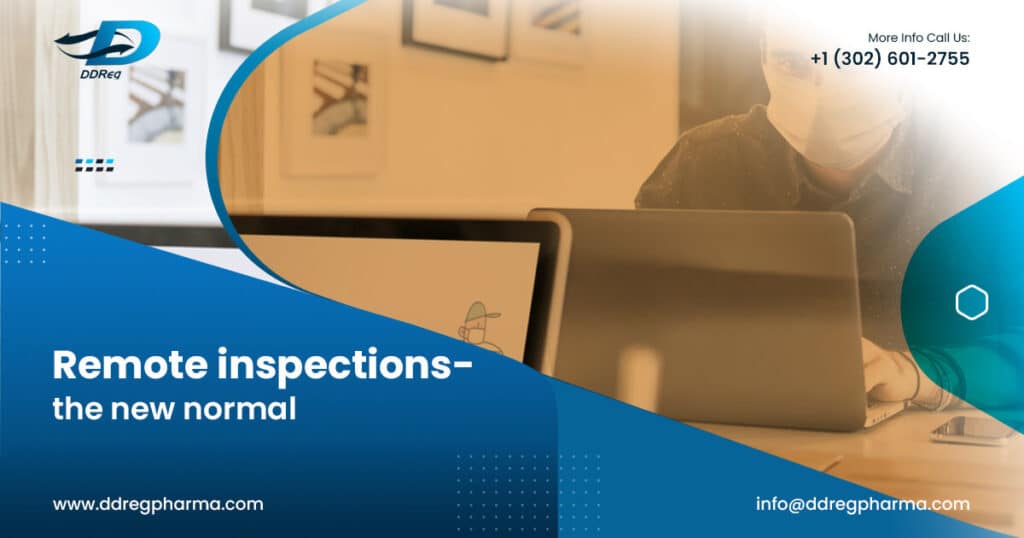The onset of the pandemic was one of the most hard-hitting events that impacted millions of people around the globe. On one hand it brought along life-changing repercussions and challenges that were first of many, but it also triggered industries to adopt innovative solutions in their everyday practices. One of these many solutions was instigating remote ways of conducting every-day operations. In the pharmaceutical industry, this included remote inspections of manufacturing sites.
Disruption of EDQM Inspection Program
In March 2020, the European Directorate for the Quality of Medicines & HealthCare (EDQM) inspection programme, an integral component of Certificates of Suitability to the monographs of the European Pharmacopoeia (CEPs) for monitoring manufacturing sites and more importantly Good Manufacturing Practice (GMP), was disrupted due to travel restrictions imposed to combat the outspread of SARS-CoV-2. As per EU legislations, EDQM inspections are mandatory in order to determine whether manufacturing sites are maintaining compliance with GMP and information submitted in CEP applications [1] .
Real-Time Remote Inspections
As the EDQM inspection program is a critical component of the CEP process, particularly in ensuring the availability of high-quality medicines, alternative methods had to be found to evaluate GMP compliance at manufacturing sites, particularly in China and India where most inspections are conducted. This led to the development of Real-Time Remote Inspections (RTEMIS) [2] as a complementary approach to the traditional combination of on-site inspections and documentation-based assessments.
Effectiveness of Real-Time Remote Inspections
Through the use of live video feeds and the implementation of RTEMIS, it was possible to assess a company’s compliance with GMP remotely while also interacting with the linking inspectors and sites. The pilot phase of this system, which began in November 2020 with inspectorates and companies participating voluntarily, was successfully finished by the end of 2021.
The effectiveness of the approach of remote assessment can be attributed to several key factors, including the utilization of IT resources like web conferencing software and secure document-sharing platforms, with support from the EDQM’s IT department. The adaptability of participants, including inspectors from the inspected companies and supervisory authorities, in adapting to the new inspection approach and overcoming associated challenges was also crucial. Adequate setup for remote inspections, such as preparatory meetings and connectivity tests, along with the availability of appropriate IT infrastructure and hardware at the inspected site, were other contributing factors to the successful implementation of the system. Collaboration from multiple stakeholders ensured the success of such remote inspections.
What transpired during the Remote Inspection Pilot Phase?
During the pilot phase, numerous RTEMIS inspections were carried out with the assistance of inspectorates from the European Economic Area (EEA), and GMP certificates were issued upon successful finalization of each inspection, indicating that the inspection was conducted remotely based on the Compilation of Union Procedures on Inspections and Information Exchange [3].
World Health Organization (WHO) modified its inspection strategy in response to the pandemic in addition to working closely with numerous regulatory partners, including the Pharmaceutical Inspections Scheme (PIC/S), the European Medicines Agency (EMA), the International Coalition of Medicines Regulatory Authorities (ICMRA), and the EDQM.
140 of the 200 inspections the WHO carried out in 2019 were on-site. But in 2020 and 2021, the number of onsite inspections decreased as the epidemic spread. The 183 prequalification exams conducted by WHO in 2020 were desktop assessments (the largest number so far). In 2021, the WHO carried out four remote evaluations.[4]
Remote inspections will be the new normal
Real-time remote inspections can have significant effects on pharmaceutical regulatory authorities and competent authorities. These effects can include increased efficiency, cost savings, enhanced access, data security concerns, limitations on observation, and the need to adapt inspection protocols. While remote inspections offer many benefits but require careful planning and implementation to ensure effectiveness and compliance with regulations.
References and Further Reading:

